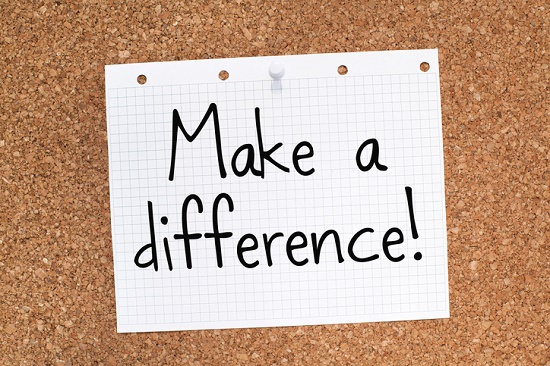
If you currently use hearing aids, you’ve already overcome the odds.
In the US, about 48 million people have hearing loss, of which 28.8 million could benefit from the use of hearing aids.
Unfortunately, of those age 70 and older, only 30 percent of those who could benefit from hearing aids actually use them. For those age 20 to 69, it’s only 16 percent.
That’s literally millions of Americans that are losing out on the benefits of healthier hearing—advantages you understand first-hand if you use hearing aids yourself or know someone who does.
So what can you do to improve awareness about the positive effects of hearing aids and the improvements to the quality of life they supply?
The following are 10 ways to become a hearing health advocate.
1. Discuss hearing loss on social media
Social media is an easy and efficient way to spread the message about the positive effects of healthier hearing. Let people know how hearing aids work, and how they’ve personally improved your life or the life of someone you know.
While people are typically skeptical of advertising, they’ll almost always be receptive to personal stories.
2. Volunteer to help those in need
Participate in a local activity like the Hearing Loss Association of America’s Walk4Hearing event, or organize your own to increase awareness or funds for hearing loss.
Contact your local hearing loss chapter and discover ways you can assist in the community. Visit the Hearing Loss Association of America to find a local chapter.
3. Donate your old hearing aids
If you’re set to upgrade your hearing aids to a newer model, look into donating your old hearing aids to a local organization or hearing clinic.
Your donated hearing aids can be restored and provided to those who couldn’t otherwise afford them.
4. Contribute to hearing health organizations
Consider contributing to an organization that provides support the deaf and hard-of-hearing community, such as the Hearing Health Foundation, Hearing Charities of America, or a local organization.
These organizations use the contributions to finance research, to deliver education and support, and to supply financial assistance to those who can’t afford hearing aids or cochlear implants.
5. Start a petition
Most states do not mandate health insurance plans to cover the expense of hearing aids. Start a petition to submit to your elected representatives, asking them to recognize hearing health as a crucial component of overall health.
6. Help someone with hearing loss
Many people believe the misconception that hearing aids don’t work, or they may even be denying they have hearing loss to begin with.
Help people to recognize and accept their hearing loss and understand that the technological innovations in hearing aids can help them recover their hearing. Help guide them through the steps of choosing a hearing care provider, getting a hearing test, and adjusting to their hearing aids.
7. Advocate for the community
Hearing loop systems supply sound directly from the source to the individual’s hearing aids. These are found in churches, movie theaters, auditoriums, and universities.
Advocate for the addition of hearing loop systems in the most popular community venues.
8. Use hearing protection
One of the best ways to advocate for hearing health is by being a hearing health role model. That means protecting your hearing at very loud settings, like at concerts or sporting events, with custom hearing protection.
9. Have your hearing tested
If you don’t already use hearing aids, express your devotion to hearing health by getting your hearing tested. Share the process on social media and suggests that other people do the same.
10. Proudly wear your hearing aids
Last, you can do your part to get rid of the stigma of hearing loss by proudly wearing your hearing aids. Hearing loss is widespread, similar to vision loss, and wearing hearing aids should be as normal and acceptable as wearing a pair of prescription glasses.